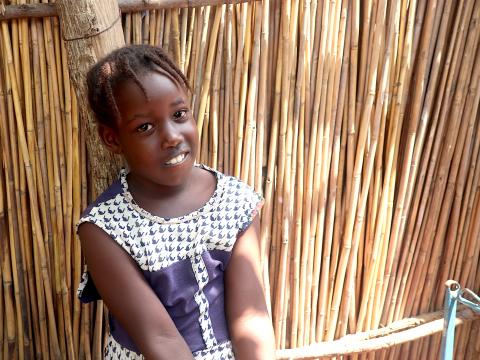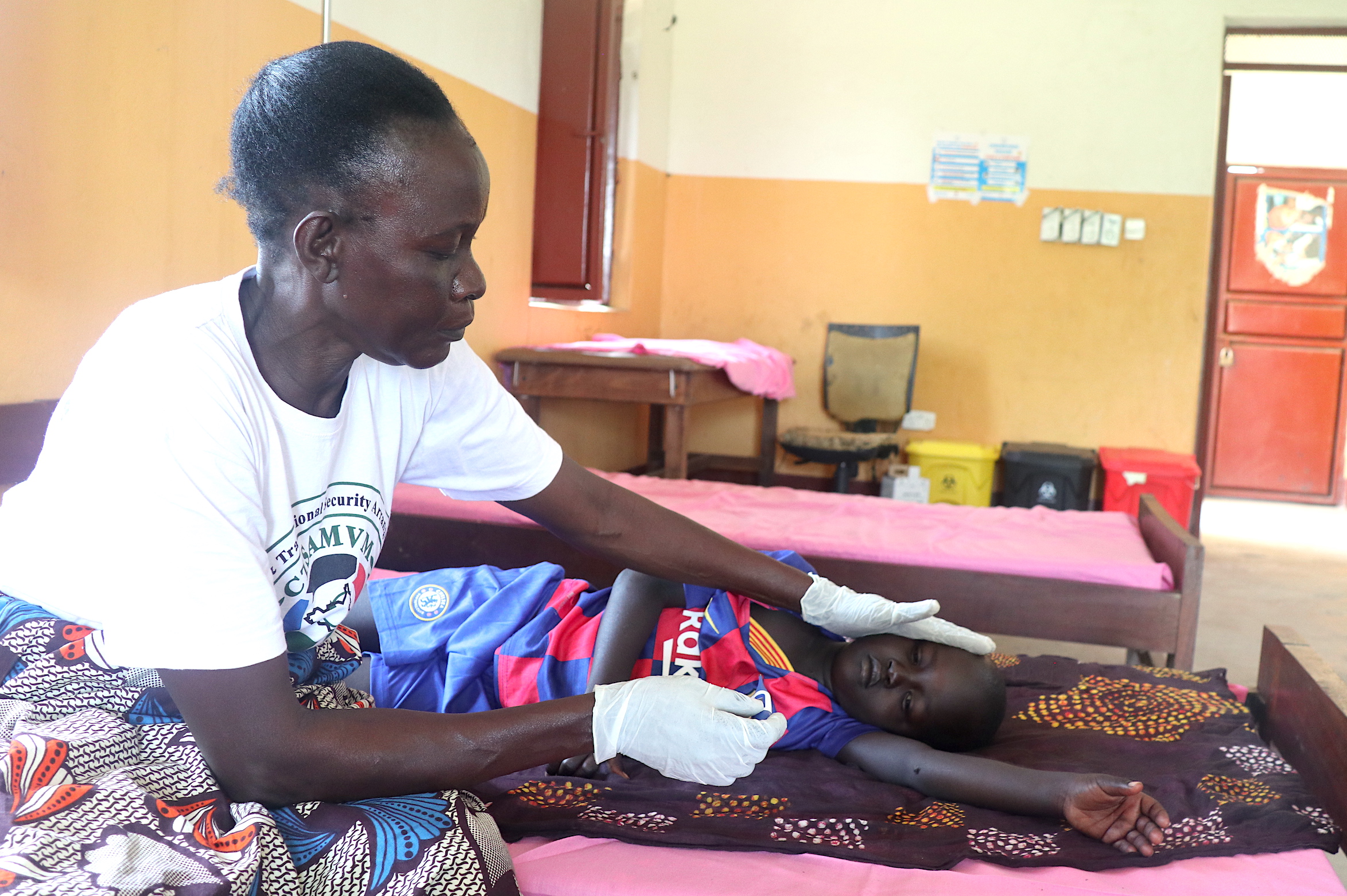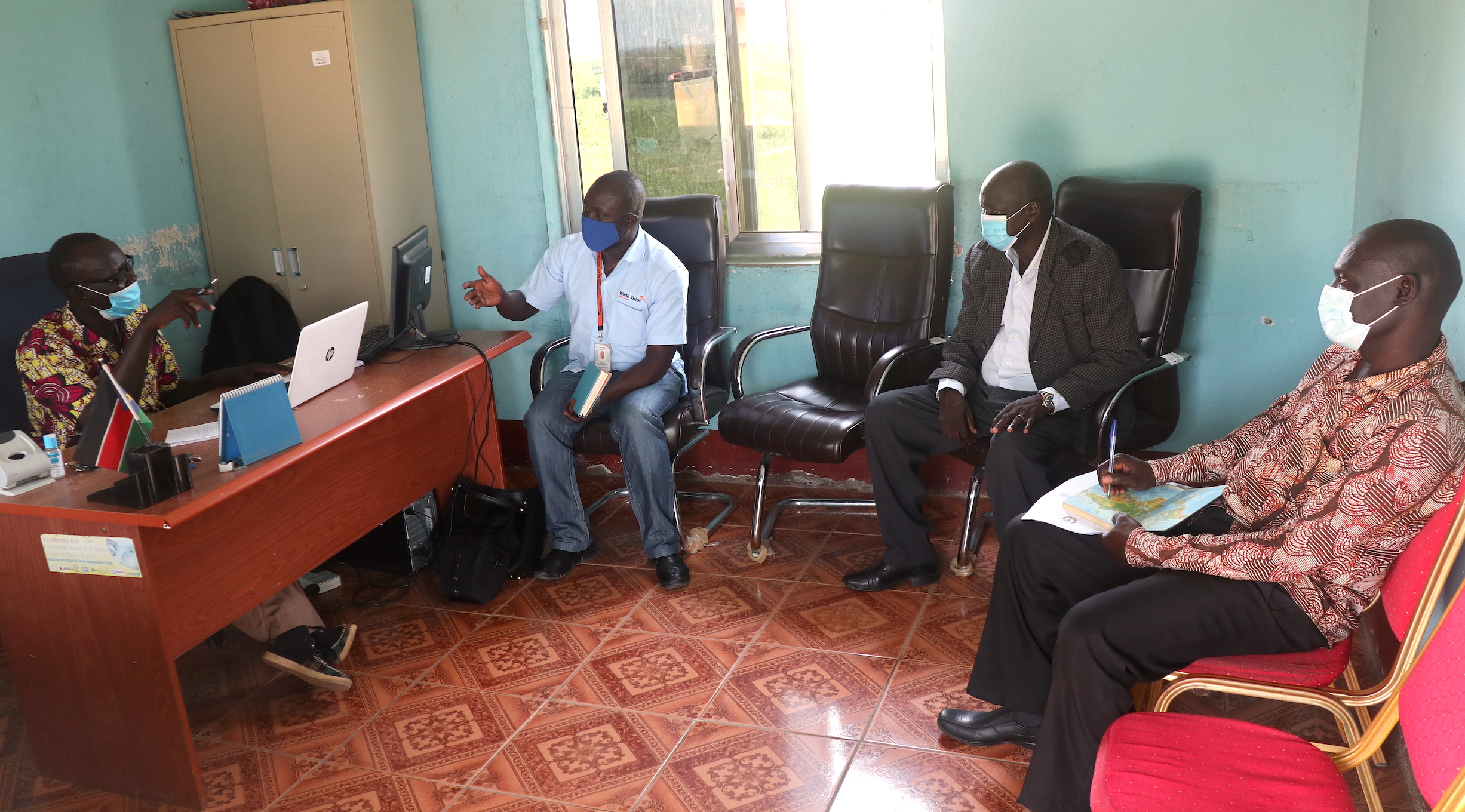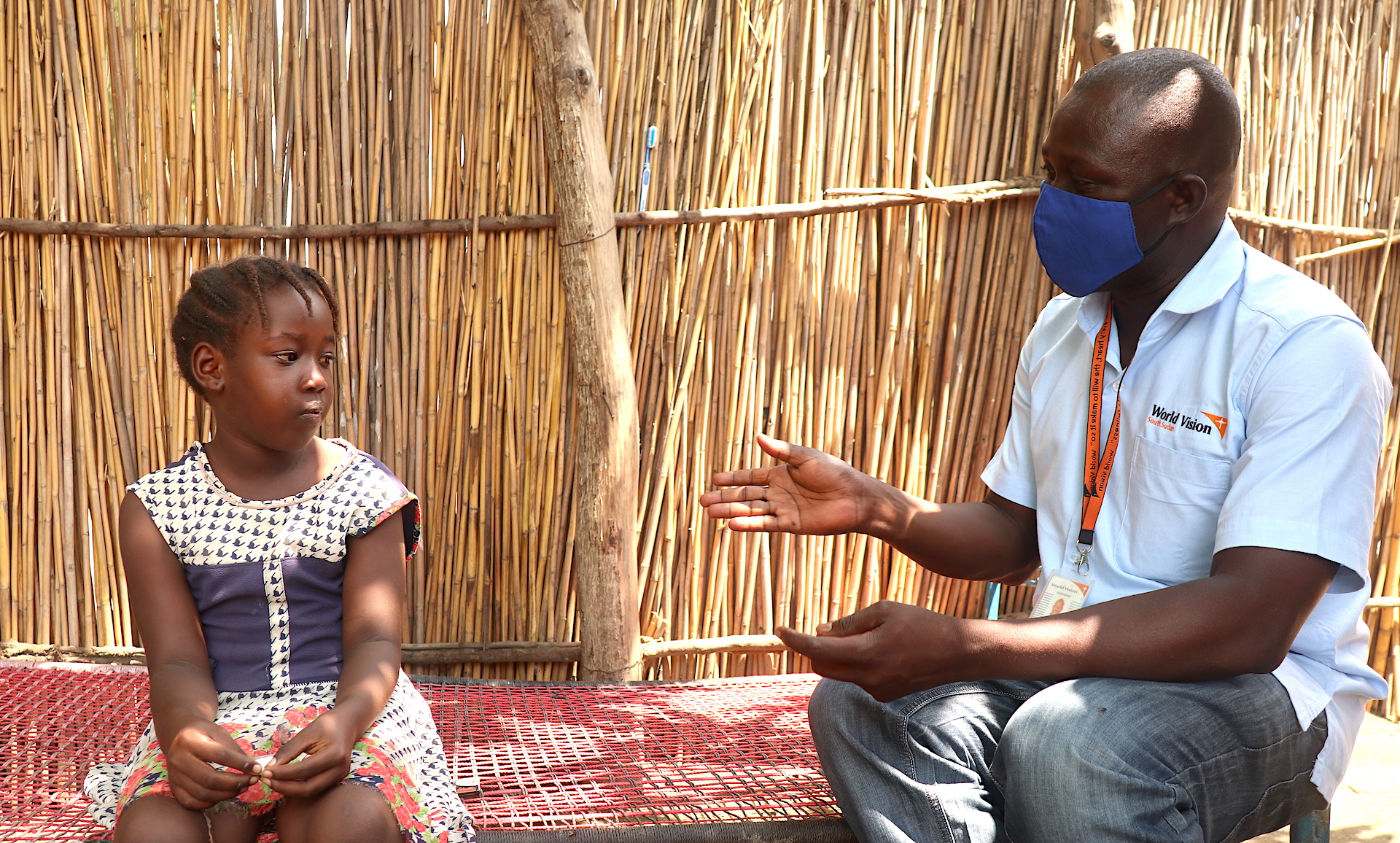World Vision, USAID and UNMISS support training of 34 COVID-19 responders in South Sudan

World Vision’s USAID-funded CORE Group Polio Project, supported by the United Nations Mission in South Sudan (UNMISS), conducted a 2-day training attended by 34 responders aimed at strengthening the coordination and response capacity of COVID-19 Taskforce and Rapid Response Team in Terekeka County in Central Equatoria State.
As soon as the COVID-19 national emergency was declared, the South Sudan Government established a National Task Force that tasked the states and county local governments to establish task forces and rapid response teams to initiate response work.
Emmanuel Fedricko Lako, Director-General of Health and COVID-19 Task Force Secretary expressed the need for people to work together to curb the spread of the virus in the community, saying “COVID-19 is real. I encourage all of us to work together and carry out massive awareness campaigns in the communities to protect the already-vulnerable people.”

World Vision’s CORE Group Polio Project Manager Anthony Kisanga said the training provided the responders with the necessary knowledge to able to understand their roles and responsibilities in protecting children. The task force is composed of members from the government’s various agencies such as health, education, as well as the police, and national security authorities, among others.
The weekly meetings with the county task force emphasize the importance of the continuity of maternal and child health services such as immunization service, antenatal care and postnatal care, which are important in the life of the children.
COVID-19 is real. I encourage all of us to work together and carry out massive awareness campaigns in the communities to protect the already-vulnerable people.
In collaboration with the state Ministry of Health, World Vision helped develop the terms of reference for the county’s task force serving as an implementation guide last May 2020. World Vision’s project in Terekeka supports the independent polio campaign monitoring at least four times a year.
According to Director-General Lako, this training is timely, as he believes COVID-19 is already in County based on its proximity to Juba and the frequent movement of people and traders between Juba and Terekeka has been ongoing since the first case of the COVID-19 was reported in the country.

He adds, “I believe the virus is already in the community because Terekeka is close to Juba where most of the confirmed cases are and locals take their goods to sell in the markets but with this training, the communities will be made aware to take the precaution measures seriously to keep them safe.”
Kisanga says, "The Central Equatoria State, where capital city Juba is located, is the epicenter for COVID-19, all of its counties were required to have an active taskforce, rapid response team with contact tracers who are equipped with skills and necessary tools to pursue their responsibilities.”
The director-general expressed his gratitude to World Vision and UNMISS for the training. He raised concerns about the lack of basic personal protection equipment such as masks, gloves, and sample collection materials for front health workers to utilize, noting that without these materials, it will be difficult to respond to suspected COVID-19 pandemic.
Terekeka County is one of the six counties in Central Equatoria State with an estimated population of about 229,253. Its town is approximately 85 kilometers north of Juba and largely inhabited by the Mundari people whose main occupation is cattle keeping.

Story and photos by Scovia Faida Charles Duku, Communications Coordinator